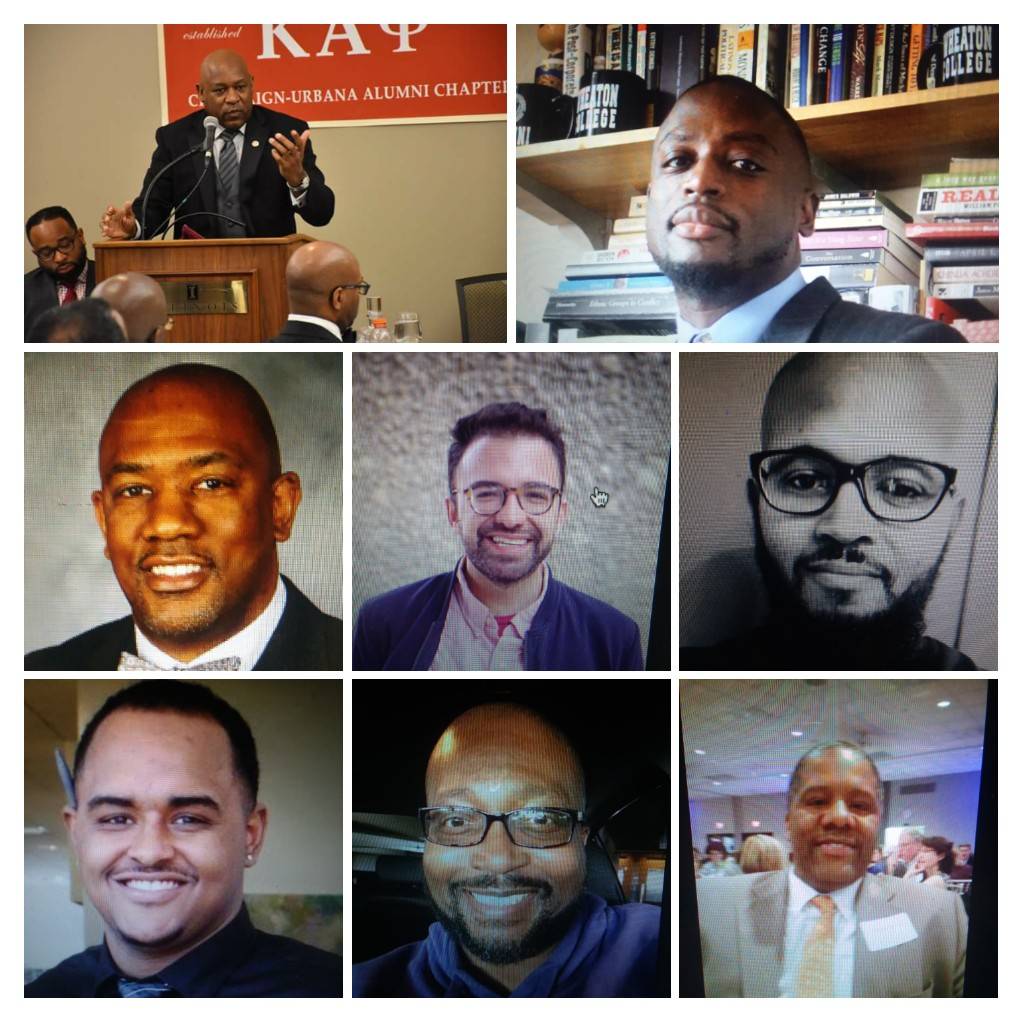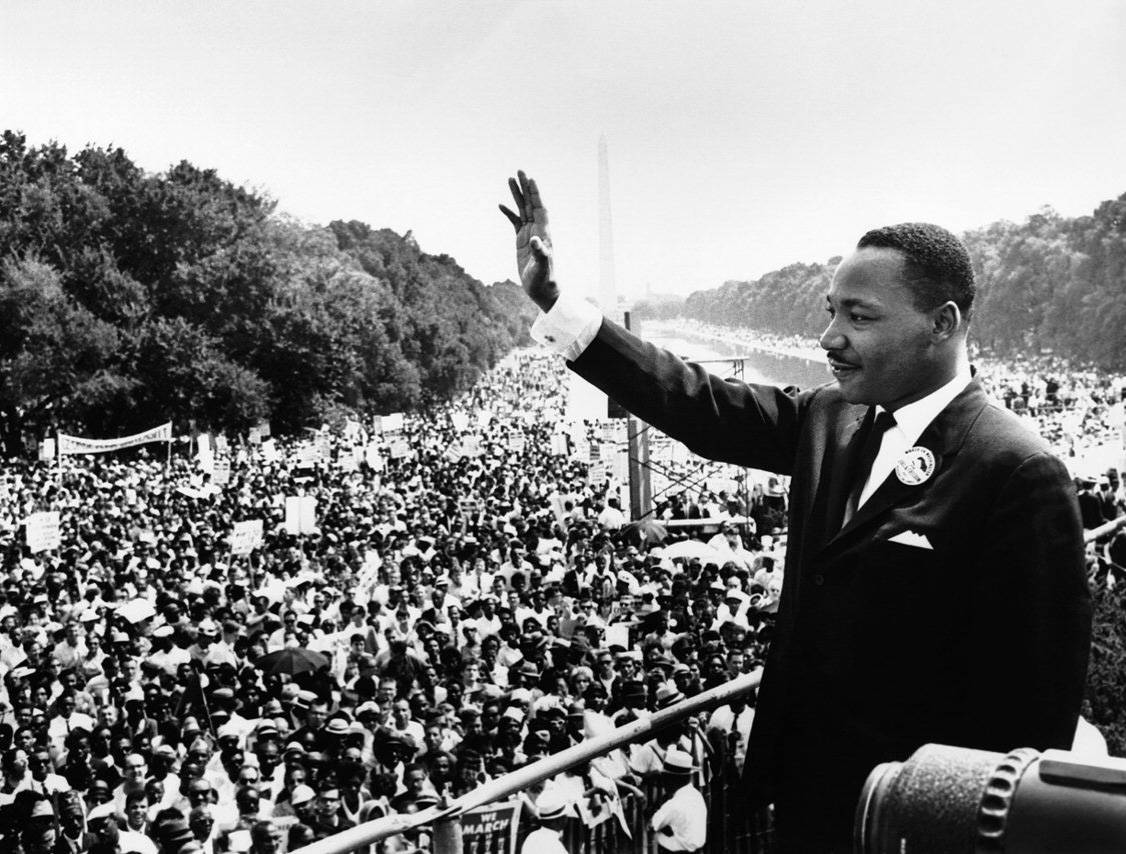During the weekend that preceded the 50th Anniversary of the assassination of Martin Luther King, Jr., I surveyed UIUC alums and members of the Champaign-Urbana community to learn the following: How does MLK’s death and legacy resonate with you today?
Robert King
Community Contributor
University Housing Staff, UIUC
Despite the fact that we are more advanced today, we still endure the skeletons in the closet of America’s ugly racial past. But I can also say that because of Dr. King I am in a better place than the elders who paved the way and I accept the role of continuing to build bridges for the future generations. There is no sideline to stand in moments of comfort and convenience. I think Dr. King, Brother Malcolm, Sister Height, Brother Hampton, and Sister Parks were all preparing today’s generation of black leaders for leadership during challenging and controversial times. Because of them I have the opportunity to impact my community using a blend of the blueprint from the past and my ideas today.
Nathan Stephens
Director, UIUC Bruce Nesbitt Arfrican American Cultural Center
The legacy of MLK to me is one that speaks of the importance of resistance. There comes a point where you have to stand up for what is right regardless of cost or consequence.
The assassination of Dr. King is also a message that is related to his legacy. It must be understood that we as individual actors must acknowledge and process the very real fact that death may be the ultimate cost and sacrifice for working for social justice.
Additionally, it is rarely discussed about how the wives and families of the civil rights leaders, and more recently the Black Lives Matter activists, are impacted. I am reminded of these things daily because of the nature of my role at the University of Illinois. Finally, I believe that in the pendulum of justice that swings back and forth towards progress and regressions with upticks of injustice. We are living in the times where the advances of the Dr. King and the civil rights leaders are being eroded, eradicated, and erased from the annuls of history.
Jorge Mena
Assistant Director, La Casa Cultural Latina UIUC
I have seen our Illinois students grapple with King’s and Malcolm X’s legacies, as well as delving into the Black Panther movement or the Brown is Beautiful movement, that have inspired many students of color as they rightfully demand equity on their college campus and learn from previous tactics used by activist before them.
Anthony B. Sullers Jr.
Doctoral Student, Education Policy, Organization and Leadership, College of Education, UIUC
Dr. King’s life and legacy resonate with me in a multitude of ways. He taught me that the most authentic and successful approach towards fighting the troubles of America as a black man is through unity, humility, and organization.
I always like to believe that through the vision that Dr. King shared during his time on this earth, I was blessed to see things the way he did and learned how to successfully develop a purpose of always wanting to do for others in the midst of developing my own legacy. Essentially, it is because of Dr. King that I have established an understanding to seek and provide a shining light in this world of darkness with much assurance in my mission for creating opportunities, arguably, for the next generation of MLK(s).
Erlis R. Murph
Academic Advisor, University of Southern California (USC)
UIUC Alum
Today more than ever, I feel compelled to a sense of action when it comes to Dr. King’s legacy and dream. As an educated 51 year old, Chicago born, black man living on the west coast, I am saddened by the lack of progress in our country as it relates to racism, sexism, classism, equality, and social injustice. People of color and marginalized groups are still struggling to find a platform where they can be heard and where change can take place. We have different groups demanding justice and change and a platform to present their message. Unfortunately, what we have is various groups fighting each other because they feel that their agenda takes priority over every other group. As a result, this has caused dissent, lack of trust and lack of unity.
Dr. King’s legacy has inspired me to teach, mentor, network, and dialogue with people of all racial, ethnic, religious, and marginalized groups. It has also inspired me to stay in the ears of the younger generation to guide them in the right direction. While mentoring our young people, I will also work to network with others from different groups with different platforms. Unifying diverse groups is the only way we will be successful at fighting the injustices in this country. So I will use my platform to change the world, one person and one student at a time and I will be that vocal leader that allows Dr. King’s legacy to remain alive.
 L to R, Row 1: James Fielder (l) and Tony Laing (r); Row 2: Nathan Stephens, Jorge Mena, Robert King; Row 3: Anthony B. Sullers Jr., Erlis R. Murph, Charles Young. Photos provided by respondents.
L to R, Row 1: James Fielder (l) and Tony Laing (r); Row 2: Nathan Stephens, Jorge Mena, Robert King; Row 3: Anthony B. Sullers Jr., Erlis R. Murph, Charles Young. Photos provided by respondents.
Dr. Tony Laing
Director, Men of Color Initiative and Lecturer, University of Wisconsin-Oshkosh
UIUC Alum
As a Black man, the legacy for Dr. King is personal. He instills in me a sense of pride not only in myself, but also for another black men who exemplified self-sacrifice and self-discipline. Furthermore, Dr. King’s galvanized our nation to stand up for equal rights through his famous “I Have a Dream” speech that eventually led to changes in once legalized discrimination laws, inspires political movements today for equal rights, justice and protections, and reminds me to regularly ask myself: how can I positively impact change in my work as an educator with male students of color?
Dr. James A. Fielder
Chapter Adviser Beta Chapter of Kappa Alpha Psi
I am a 56-year-old man. I was born and reared in St. Louis. My travels, via military and education, have allowed me to travel to many parts of the United States, and various countries in the world. I have experienced overt racism and ignorance when it comes to cultural sensitivity. I strongly believe that it is paramount that I, as a person of color, continue to work towards keeping Dr. King’s legacy alive.
In my secular career, I work in information systems. Unfortunately, I don’t see a lot of people of color in my travels. Consequently, many times, I become a voice for my people. I am seguing into full time ministry. Dr. King stated that the most segregated day in the United States is Sunday morning. I have been asked to speak on several occasions about my experiences within a denomination that does not have many people of color. Thus, I have become a voice regarding cultural sensitivity. Dr. King’s “I Have a Dream” speech resonates with me every Sunday morning. I am reminded of the phrase “lest we forget.” Lest we forget Dr. King’s legacy? I pray to be a catalyst amongst my brothers and sisters of people of color to keep his dream alive.
Dr. Charles Young
UIUC Alum
Me personally, God told me to get involve with politics and to educate black folks on this topic too.
Nicole Anderson Cobb, PhD, is a four-time UIUC Alum.
Top photo from Facebook.








